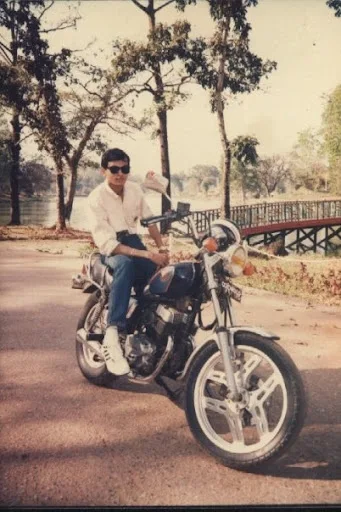Thursday, July 10, 2025
Split My Chest and Take My Heart
The Dark Side of the Fisheries Industry
Tuesday, July 08, 2025
The dark side of Fisheries
Monday, July 07, 2025
US Future Political Building: Constructing from Within, Not from the Periphery.
US Future Political Building: Constructing from Within, Not from the Periphery
The enduring architecture of American politics is undeniably dominated by the two towering edifices of the Democratic and Republican parties. While the allure of erecting a new structure – a viable third party – persists in the national consciousness, the bedrock of the US constitutional and electoral framework renders such an undertaking a monumental, if not Sisyphean, task. Both established parties, intimately familiar with this terrain, understand the near-impossibility of fundamentally altering this deeply entrenched duopoly.
For the upcoming generation of politically engaged US citizens, this reality necessitates a strategic recalibration. The energy and ambition to shape the nation's future must be channeled effectively. Rather than expending resources on the arduous and often fruitless endeavor of constructing a political force from the outside, the more pragmatic and potentially impactful path lies in building from within these existing structures.
The obstacles facing third-party movements in the United States are not mere inconveniences; they are systemic barriers woven into the fabric of the political system. Archaic ballot access laws often impose prohibitive financial and logistical hurdles, effectively gatekeeping access to the ballot box. The pervasive winner-take-all electoral system, a cornerstone of American elections, inherently disadvantages smaller parties, where a plurality, not necessarily a majority, secures victory. Coupled with the vast financial and organizational advantages wielded by the Democrats and Republicans, the prospects for a nascent party to gain significant traction are exceedingly slim.
Acknowledging this challenging landscape, a more strategic imperative emerges: to cultivate a new cohort of skilled and principled leaders who can rise through the ranks of the existing Democratic and Republican parties. This approach recognizes the inherent power and reach of these established organizations and seeks to leverage their infrastructure to achieve meaningful political influence.
To facilitate this internal ascent, the formation of a dedicated association focused on leadership development is crucial. Envision an institution, perhaps named "The Internal Builders' Academy" or "The Progressive Ascent Initiative," dedicated to equipping aspiring politicians with the essential tools for success within the existing party system.
The core pillars of this academy would encompass:
- Mastering the Political Landscape: In-depth study of the US Constitution, electoral laws, party structures, and the intricacies of legislative processes.
- Strategic Campaigning and Organization: Hands-on training in campaign management, fundraising, voter mobilization, and digital engagement strategies tailored to navigating party primaries and general elections.
- The Art of Political Communication: Cultivating exceptional public speaking, debate, and media relations skills to effectively articulate ideas and connect with diverse audiences within the party and the broader electorate.
- Policy Expertise and Economic Understanding: Developing a comprehensive grasp of key policy issues and economic principles to inform sound governance and policy formulation.
- Ethical Foundation and Collaborative Leadership: Instilling a strong ethical compass and fostering the ability to build coalitions and navigate the complexities of party politics with integrity.
By investing in this kind of comprehensive training, the association would empower a new generation to strategically engage with the Democratic and Republican parties, contributing fresh perspectives and driving policy from within. This approach acknowledges that meaningful change often requires navigating and ultimately leading within established systems.
While both the Democratic and Republican parties have their own mechanisms for cultivating future leaders, an independent and dedicated association can provide a more focused and potentially non-partisan foundation for aspiring politicians across the spectrum. By equipping young individuals with the skills to succeed within the existing framework, this initiative offers a more direct and pragmatic pathway to shaping the future of American politics.
The path to political influence in the United States is undoubtedly complex. However, by strategically focusing on building from within the established political structures, the next generation can move beyond the limitations of external challenges and actively construct the future of American governance. The most effective way to shape the edifice of American politics may not be to build a new one next door, but to skillfully and strategically renovate from the inside out.
Saturday, July 05, 2025
Who eat my chese ? ( မြန်မာလိုပါသည်)
1948
Saturday, June 14, 2025
New Military Perspectives and the Future of ASEAN
လူမှုအသိုက်အဝန်း ပြိုကွဲပျက်စီးခြင်းနှင့် ပြန်လည်တည်ဆောက်ခြင်း
လူမှုအသိုက်အဝန်း ပြိုကွဲပျက်စီးခြင်းနှင့် ပြန်လည်တည်ဆောက်ခြင်း - မြန်မာ့ရွှေ့ပြောင်းဒုက္ခသည်များဆိုင်ရာ စိတ်ပိုင်းဆိုင်ရာ၊ လူမှုရေးစနစ်နှင...

-
The National Unity Government (NUG) of Myanmar is a government formed by revolutionary forces and pro-democracy forces in respon...
-
အိမ့်မက်လှလှ မက်ဖို့ရာ ငြိမ်းချမ်း ပျော်ရွှင်မှုလေးတော့ ရှိဖို့လိုပါတယ်။ အဂ္ဂ မြန်မာ့စစ်အုပ်စု စစ်ရှုံးပြီးနောက် တိုင်းပြည်တည်ငြိမ်အေးချမ်းရ...
-
THERAPEUTIC COMMUNITY (TC) AADAP, Inc. "Whenever I hear AADAP, the word MONAD comes to mind. MONAD is nothing other than 'M...






.jpg)



